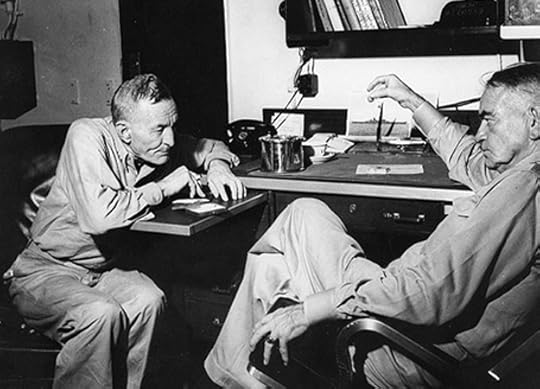Face it, Goldwater-Nichols hasn’t worked

By Col. Gary Anderson (USMC, Ret.)
Best Defense department of defense de-organization
Three decades ago, when the military reform movement was
beating the drum for what became the Goldwater-Nichols legislation, a number of
us in uniform and out, were trying to sound a cautionary note. We got outvoted
and the legislation passed. "Jointness" became the new mantra, and arguing
against it became heresy, if not hate speak. Based on recent events, it may be
time to reassess Goldwater-Nichols.
The proponents of the elevation of jointness to absolute
military supremacy claimed that it would prevent long open ended wars such as
Korea and Vietnam by giving the President and Secretary of Defense better
military advice than they got in such conflicts. The reformers also promised
more competent and professional military leadership and less cumbersome command
arrangements. The results of the wars in Kosovo and Operation Desert Storm
in the immediate aftermath of the Goldwater-Nichols legislation seemed to
confirm the validity of those promises; but somewhere in the ensuing decades,
the wheels came off.
Instead of fast and clean conflicts, we got Afghanistan
and Iraq. Not only were they long and strategically muddled, they were also
poorly executed by the joint institutions that Goldwater-Nichols was supposed
to fix. In his new book, The Generals,
Pulitzer Prize winning author Tom Ricks ruthlessly exposes the myth that our
generalship was improved by Goldwater-Nichols. He argues that the generalship
of the likes of Tommy Franks and Ricardo Sanchez was marked by absolutely
mediocre planning and strategic leadership. In Afghanistan, we have had
averaged one supreme leadership change a year. In addition the Navy relieved
more commanders than in any time in its history, and the other services have
been plagued by instances of misconduct by senior officers.
Many of those who argued for Goldwater-Nichols used the
German General Staff as a model to aspire to. While the German generals were
superb at tactics, they were lousy strategists. After winning the wars of
German unification in the nineteenth century, they lost two disastrous world
wars. As Ricks points out, our generals are good tacticians, but poor
strategists. Ironically, the reformers got what they wished for.
The problem is not just with general officers; our joint
staffs have become bloated with unneeded officers due to the legislative
mandate that every officer aspiring to reach flag rank has to serve two years
in a joint billet. No-one has ever explained how serving as a Joint Graves
Registration Officer will produce our future Grants, Shermans, or Pattons.
There was a time when being selected for major was the great cut in an
officer's career. Today the running military joke is that if you can answer a
phone, you can become a Major.
Strengthening the unity of command of joint operations
was a good idea, but most of our regional joint staffs are bloated to a point
where they ill-serve the commanders who lead them. Because of the number of
joint officers the law requires. Admiral Halsey and Rommel won their most
famous victories with staffs a fraction of the size of the average U.S. Army
brigade combat team staff today.
This can be fixed. Unfortunately, we will need even more
legislation. First, we need to get rid of the requirement that all general
officer candidates be joint certified. All of our generals and admirals don't
need to be superb joint war fighting experts. Rommel was not a General Staff
officer, and Halsey would not have wanted to be one. The joint staff track
should be reserved for those who aspire to eventual joint command and staff
positions, but there should not be a stigma for those who want to lead air
wings, Marine Corps Expeditionary Forces or Navy fleets; we need real warriors
as well as soldier-diplomat strategists.
A smaller, more elite joint staff corps would allow us to
concentrate on creating real strategic expertise. Joint Staff candidates should
be put through a series of rigorous force-on-force seminar war games that would
test their capability to make both diplomatic as well as military decisions
against competent, thinking opponents. Those candidates who come up short in
such tests should be sent back to their services with no stigma to their
careers. Successful graduates would still spend time with troops, fly
airplanes, or drive ships when not serving on joint staffs; however, once
selected for flag rank, their command and staff positions would be primarily
joint. This would allow joint staffs to be smaller and more efficient.
Goldwater-Nichols has institutionalized mediocrity. We can, and must, do better.
Gary
Anderson, a retired Marine Corps officer, is an Adjunct Professor at the George
Washington University's Elliot School of International Affairs.
Thomas E. Ricks's Blog
- Thomas E. Ricks's profile
- 436 followers



